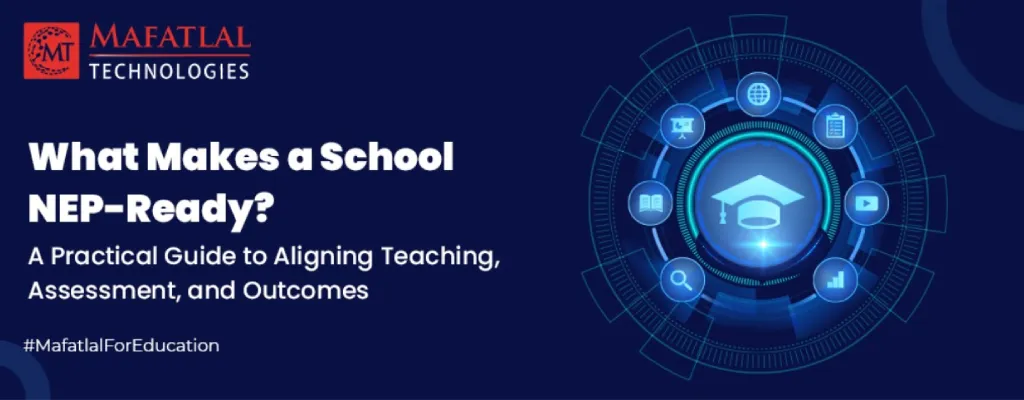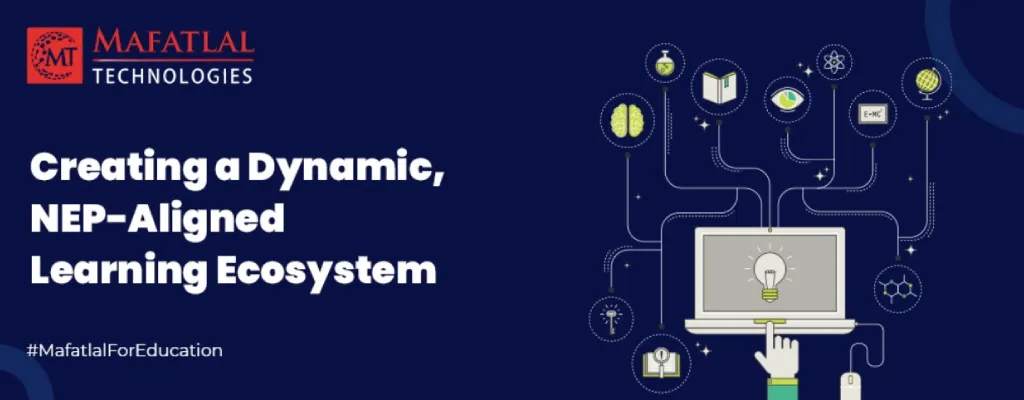The National Education Policy (NEP) represents a significant shift in how schools approach teaching, assessments, and student development. For school leaders, teachers, and stakeholders, the question is no longer if NEP readiness is essential, but how to make it a reality.
Being NEP-ready is about reimagining classrooms as dynamic learning hubs where teaching, assessment, and student outcomes align to meet modern educational goals.
Schools need to embrace structured yet flexible approaches that respect a teacher's unique way of teaching while supporting improved student learning outcomes.
In this blog, we’ll explore the practical steps every school can take to meet NEP expectations and create an environment where both teachers and students thrive.
Personalization for Heterogeneous Learners
Indian classrooms are inherently diverse. From language backgrounds to learning styles, every student brings unique needs.
NEP-readiness calls for tools and strategies that enable personalized and adaptive learning paths without disrupting traditional teaching methods.
AI-assisted teaching platforms can support teachers by analyzing learning outcomes in real-time, identifying struggling students, and enabling fluidic exchange of ideas within the classroom. Furthermore, it enhances their ability to meet every learner where they are.
Dynamic Lesson Planning and Creative Resource Curation
NEP-ready schools foster an environment where teachers curate creative learning resources and dynamically plan lessons to suit evolving student needs.
With AI-assisted platforms, this process becomes more streamlined and time-efficient, while ensuring that teaching pedagogy and school syllabi remain engaging, relevant, and aligned with NEP guidelines. Structured training further simplifies implementation, introducing meaningful innovation without disrupting the teacher's unique approach.
Embracing Hybrid Classrooms and Peer Learning Models
The NEP encourages schools to adopt hybrid classrooms, promote self and peer learning, and cultivate collaborative environments that support holistic student development. A well-designed hybrid classroom strikes the right balance between digital resources and traditional teaching practices. It enables students to engage with interactive, technology-enabled lessons while still benefiting from the structure and personal connection of in-person learning.
Similarly, incorporating self-assessment tools and peer-graded evaluation systems fosters accountability and builds essential life skills such as critical thinking, communication, and teamwork. These competencies not only prepare students for academic success but also equip them to navigate real-world challenges with confidence.
By thoughtfully blending digital tools with practical learning experiences, schools can align with the NEP’s vision of revamping India’s education system to be more inclusive, adaptable, and outcome-focused.
Data-Backed Learning Outcome Evaluation
The NEP 2020 marks a clear shift towards data-driven, competency-based assessment that moves beyond rote learning. A key element of this transformation is the use of AI-assisted tools and digital platforms to track student progress, evaluate learning outcomes, and enable timely interventions.
Data-backed evaluation systems allow teachers to identify learning gaps early, measure skill development, and ensure every student receives the support they need to thrive.
Moreover, NEP's emphasis on flexible board examinations, including the option for Class 10 students to appear for board exams twice a year, reflects a broader commitment to reducing academic stress and promoting continuous learning.
Creating a Dynamic, NEP-Aligned Learning Ecosystem
The NEP brings with it a renewed emphasis on building a holistic, inclusive, and future-ready education system. But becoming NEP-ready goes beyond integrating digital tools. It requires a fundamental rethinking of how schools approach teaching, assessment, curriculum planning, and student development.
A key part of this transformation is embracing the NEP's vision for:
Holistic Development: The NEP prioritizes not just academic excellence but also the cognitive, social, and emotional growth of every student. Schools are expected to create inclusive, supportive environments that nurture resilience, confidence, and life skills.
Early Childhood Education: Building strong foundational skills between ages 3 to 6 is critical for long-term academic success. The NEP promotes play-based, activity-driven learning through quality anganwadis and preschools to help children develop cognitive skills from the very start.
Revamped Curricular Structure: The 5+3+3+4 model restructures the school years to align with developmental milestones. This flexible, phased approach encourages critical thinking, creativity, and practical learning while reducing curriculum overload, making education more engaging and less stressful.
Multilingual Learning: According to a research study by UNICEF, learning in one’s mother tongue enhances comprehension and critical thinking. The NEP’s emphasis on regional languages, alongside Hindi and English, helps students strengthen their cognitive abilities while staying connected to their cultural identity.
Assessment Reforms: Moving away from exam-centric evaluation, the NEP advocates competency-based, formative assessments. This approach focuses on conceptual clarity, problem-solving, and real-life application of knowledge.
While these elements set a strong foundation, the real challenge lies in implementing them seamlessly without overwhelming teachers or disrupting classroom dynamics. AI-assisted platforms, dynamic lesson planning, and structured teacher training play a pivotal role in translating NEP ideals into reality, helping schools create a dynamic learning ecosystem that reflects the NEP’s vision while preserving the unique character of every classroom.
As an NEP-ready school, your focus should be on building a dynamic, adaptable ecosystem where personalized learning, creative resource curation, hybrid classrooms, and outcome analysis all work together seamlessly. At Mafatlal Technologies, we help schools achieve this through affordable AI-assisted teaching platforms, structured teacher training, and year-long support designed for scalability and ease of implementation.
In Conclusion
Implementing education reforms requires patience, collaboration, and the right tools to create meaningful, lasting change. With thoughtful steps such as personalized learning for diverse classrooms, dynamic lesson planning, peer collaboration, and data-backed evaluation, schools can confidently move towards the expectations set by NEP-2020.
If your school is looking for practical, structured ways to make classrooms more dynamic, assessments more insightful, and your entire learning ecosystem future-ready, we would be glad to partner with you.
Email us at technology@mafatlals.com / Book a demo or call +91-22-6901 3918 to learn how our personalised, policy-aligned support can help your educators and students succeed.


